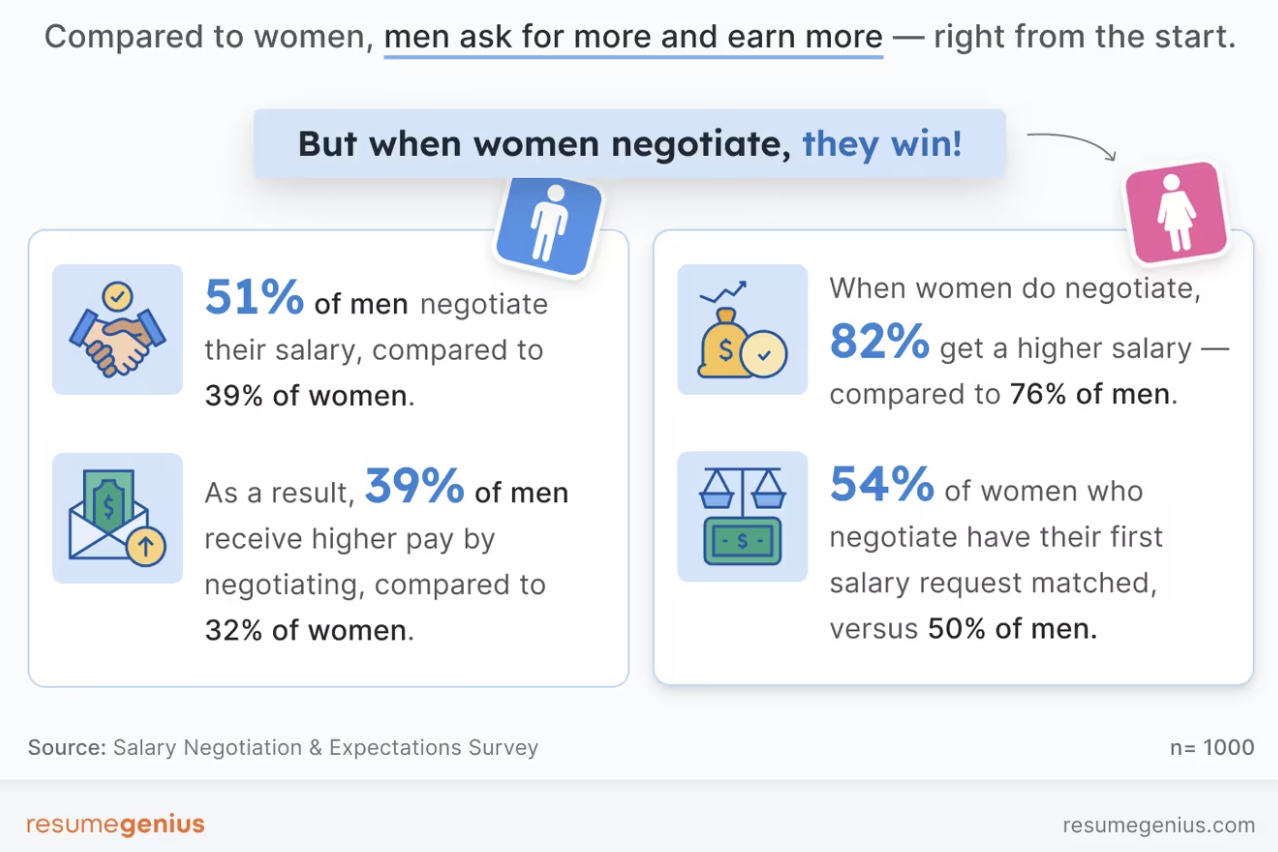
Findings show not negotiating starting salaries can lead to pay gap, feelings of regret

The majority of employees in the United States are not negotiating their starting salaries, leading to feelings of regret and even pay gaps, according to a new report.
Findings from Resume Genius revealed that 55% of Americans accept their initial job offer without negotiating.
Among those who negotiated their starting salaries, 78% said they ended up with a better offer. This includes 51% who had their salary request fully matched, and 27% who received a higher offer, though not their full ask.
According to the report, 51% of men negotiate their starting salaries, compared to only 29% of women. However, it found that women reported better outcomes when it comes to negotiating their starting salaries.
More than half of women said their salary request was fully matched (54%), slightly higher than the 50% of men who reported the same result.

Eva Chan, Career Expert at Resume Genius, said their findings show that women clearly have the skills to negotiate their salaries.
"If you've been invited to move forward in the hiring process, it means your value has already been recognised," Chan said in a statement. "The next step is trusting that you've earned your seat at the table and being ready to speak up for the compensation you deserve."
By generations, 55% of Gen Z employees reported negotiating their starting salary, higher compared with Millennials (48%), Gen X (42%), and Baby Boomers (42%).
Chan attributed this to Gen Z employees seeing salary negotiations as part of the hiring process.
"That shift in mindset may be one reason Gen Z is stepping into these conversations more confidently and receiving a salary bump because of it. They understand that simply asking can lead to a better offer, and the worst an employer can say is no," Chan said.
Chan added that their findings show how many jobseekers underestimate the impact of early salary conversations.
"Negotiating your starting salary can compound over time and significantly impact your entire earnings trajectory," she said.
In fact, Resume Genius found that 57% of employees had regrets about their negotiation approach.
According to the report, 30% of employees regretted their approach but felt it was the right decision at the time, while 27% said they didn't negotiate but wish they had.
Despite being the leaders in starting salary negotiations, younger employees are more likely to express regret over not negotiating more, according to the report.
More than six in 10 Gen Z (65%) and Millennial (63%) employees said they regret not negotiating more, compared to 55% of Gen X and 44% of Baby Boomers.
Not being able to negotiate starting salaries can lead to a gap in pay between genders, according to the report, attributing it to the likelihood of men and women when it comes to such conversations.
In fact, the report found that 20% of women regret not negotiating their starting salaries at all.
"Even if it feels uncomfortable or unlikely to succeed, it's worth asking," Chan advised. "The worst thing that can happen is you get a no — and the best-case scenario is hundreds or thousands more on your paycheck."